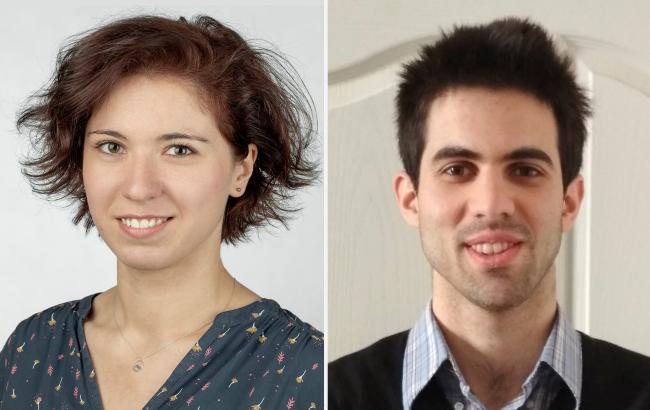SZTAKI researchers, Júlia Bergmann and Ambrus Tamás win Cooperative Doctoral Program scholarship
Júlia Bergmann and Ambrus Tamás, researchers of Research Laboratory on Engineering & Management Intelligence of SZTAKI, won the Cooperative Doctoral Program scholarship, announced by the Federal Ministry of Economics and Technology (ITM).
“One of the main goals of the Cooperative Doctoral Program is to expand the number of research-development-innovation employees – mostly in mathematics, natural sciences, engineering and information technology – whom are about to amplify their knowledge with the most up to date scientific results, and also engaged about to use their profession to gain social and economic benefits” – says the official site of the program.
The goal of Júlia Bergmann’s PhD research is to develop solutions based on machine learning that support production data-based decision making in production and logistics systems, considering the ever-changing circumstances and the presence of human workforce.
“The research program includes tasks connected to general data analysis, notes the required sum of background in mathematics and computing, and how to combine them. As a special field of data science, industrial data analysis requires high level understanding of manufacturing system models, as well as the current level of industrial digitalization. The IT part of the research work is to connect the former two topics, building a bridge between theoretical results and actual practice” – says Bergmann.
Her professional lead is SZTAKI fellow researcher András Kovács, while her consultant is the head of Research Laboratory on Engineering & Management Intelligence, József Váncza.
Ambrus Tamás’s application is also connected to machine learning: it focuses on classification and regression, as these are the central tasks of statistical learning theory.
“These are in the frontline of questions about industry, finance and healthcare” – say Tamás, whose consultant is SZTAKI senior research fellow Balázs Csanád Csáji, while his company leader is László Gelencsér, doctor of HAS. “The goal of the application is to develop powerful, possibly non-asymptotic robust solutions. Aside from aimed base research, I also weight on the applicable use of my results. I validate the suggested procedures by numeric experiments and tests.”
The ITM powered program was available for researchers as individuals. Organisers originally calculates with 100 scholarship winners, eventually positively evaluating 246 works of the applied 529.
